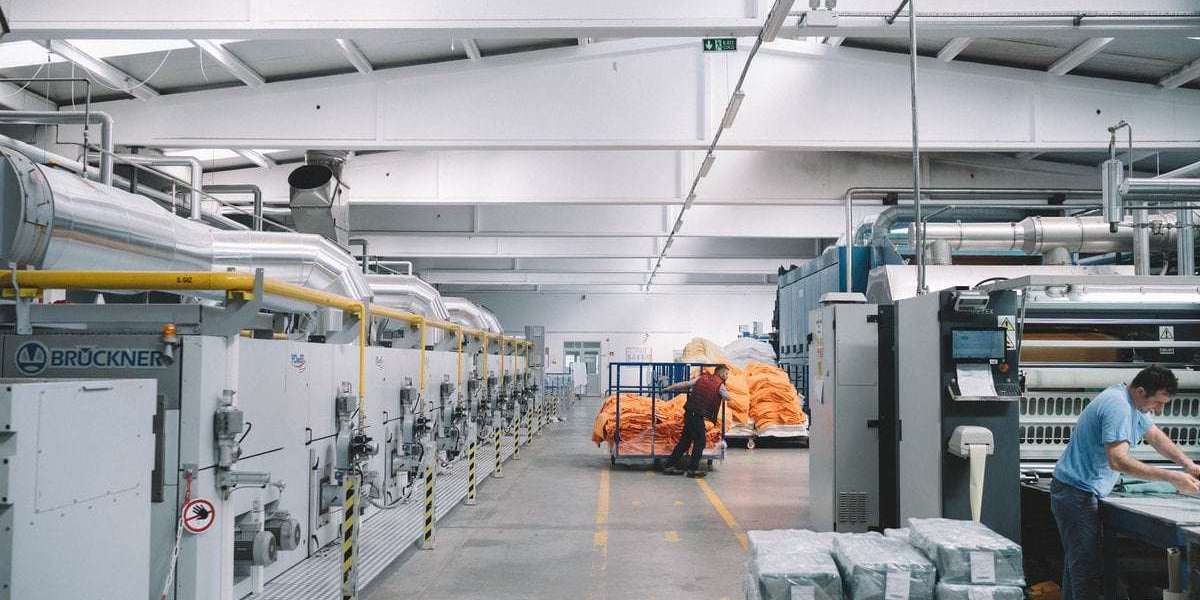Choosing the right upholstery fabric is a critical decision for any furniture project, whether you're a professional upholsterer, an interior designer, or a passionate DIY enthusiast. The fabric dictates the look, feel, and longevity of the finished piece. However, an often-overlooked factor that is just as crucial is your choice of supplier. The right upholstery fabric supplier in the UK can be the difference between a smooth, successful project and a logistical nightmare. This guide will walk you through the key considerations to ensure you partner with a supplier who meets your needs for quality, service, and reliability.
Understanding Your Project Requirements
Before you even begin searching for a supplier, you must have a crystal-clear understanding of your own project's demands. This initial groundwork will save you countless hours sifting through irrelevant options. Start by asking yourself a series of fundamental questions. What is the primary purpose of the furniture piece? A heavily used family sofa demands a completely different fabric than an occasional accent chair in a formal living room. Who will be using it? Households with children, pets, or individuals with allergies have specific needs that must be prioritised.
Next, define your budget parameters. Fabric costs can vary astronomically, from budget-friendly polyesters to premium imported wools and linens. Knowing your financial boundaries will immediately narrow down your supplier options. Also, quantify the amount of fabric you need. Are you looking for a few metres for a small project, or are you sourcing for a large commercial contract like a hotel or office fit-out? Some suppliers specialise in small, retail quantities, while others operate on a minimum-order wholesale basis. Finally, have a strong sense of the aesthetic you wish to achieve. Collect swatches, create mood boards, and note down the colours, textures, and patterns you are drawn to. This will help you quickly assess if a supplier's portfolio aligns with your vision.
The Importance of Fabric Quality and Durability
The allure of a beautiful pattern or a seductively soft hand-feel can be powerful, but never let it overshadow the non-negotiable aspect of quality and durability. For upholstery, the fabric must be built to last. The first metric to understand is the Martindale rub test, a measure of a fabric's abrasion resistance. For domestic use, a rating of 15,000 to 25,000 rubs is generally considered good. For heavy domestic use or light contract use (like a waiting room), look for 25,000 to 45,000 rubs. For intense commercial settings (hotels, restaurants, offices), fabrics should exceed 45,000 rubs.
Beyond the rub test, examine the fabric's composition. Natural fibres like cotton and linen are breathable and comfortable but can be prone to staining and fading. Wool is exceptionally durable and resilient but can be expensive. Synthetic fibres like polyester, nylon, and acrylic are often solution-dyed, making them incredibly resistant to fading from sunlight and staining. Most modern upholstery fabrics are blends, combining the best properties of different fibres—for example, a wool-nylon blend for added strength or a cotton-polyester blend for easier maintenance. Always ask the supplier for detailed specifications on composition, Martindale score, and cleaning codes to make an informed decision.
Evaluating the Supplier's Product Range
A reputable supplier should offer a diverse and comprehensive product range. This doesn't necessarily mean having thousands of generic options, but rather a well-curated selection that covers various needs. Look for a supplier that stocks different weights and types of fabric suitable for various applications: sturdy fabrics for sofas and armchairs, lighter weights for drapes and cushions, and perhaps even outdoor fabrics if that's relevant to your work.
A strong range will include a variety of weaves, such as hard-wearing plains, elegant velvets, intricate jacquards, and hard-wearing tapestries. The colour palette should be extensive and, ideally, include options for colour-matching or customisation. Furthermore, consider if they offer more than just fabric. Do they supply complementary products like trimming, piping, zippers, or fire-retardant treatments? A one-stop shop can streamline your sourcing process, saving you time and simplifying your supply chain. A supplier with a limited or overly niche range might not be able to support you as your business or project needs evolve.
Assessing Reliability and Reputation
In the trade, a supplier's reputation is their most valuable currency. A beautiful sample book is worthless if the company consistently delivers orders late, has poor communication, or fails to handle issues professionally. Start your assessment by digging into their online presence. Read Google Reviews and testimonials on their website. Pay attention to how they respond to both positive and negative feedback. A company that addresses complaints constructively is a good sign.
Ask for recommendations from industry peers, join relevant trade forums on social media, and see which names are consistently praised. How long has the company been trading? While new companies can be excellent, a long-established track record often indicates stability and experience in navigating supply chain issues. A reliable supplier is a partner you can depend on for consistent quality and dependable delivery, which is essential for meeting your own deadlines and maintaining your professional reputation.
Minimum Order Quantities and Pricing Structure
This is a critical practical consideration, especially for smaller businesses and individual craftspeople. Many wholesale suppliers operate with Minimum Order Quantities (MOQs). This could be a minimum spend per order (e.g., £250) or a minimum metreage for a particular fabric (e.g., a full roll or 10 metres). Before investing time in requesting samples, ensure their MOQ policy aligns with your needs. Some suppliers may have lower thresholds for new customers or for certain product lines.
Transparency in pricing is equally important. Is the price listed on the website or in the catalogue, or is it only available upon application? Many trade suppliers have password-protected websites with logged-in trade pricing. Ensure their pricing structure is clear and that there are no hidden costs. Inquire about delivery charges, especially for smaller orders, and ask if they offer a sale or return service, which can be helpful for one-off projects. Understanding the full financial picture upfront will prevent unexpected surprises and help you budget accurately.
The Sample Process and Customer Service
The true test of a supplier often lies in the sample process and the quality of their customer service. Reputable suppliers will always encourage you to order samples before committing to a large purchase. Evaluate this process. Is it easy to order samples online? Are they reasonably priced or free? How quickly do they arrive? Receiving samples promptly is a good indicator of their overall operational efficiency.
Once the samples arrive, scrutinise them. Are they a generous size, allowing you to properly assess the drape, colour, and texture? Do they come with adequate information, such as the product code, composition, and price? This is also the perfect time to test their customer service. Give them a call or send an email with a question. Were they responsive, knowledgeable, and helpful? A supplier with excellent customer service can provide invaluable advice, help you troubleshoot problems, and make the entire procurement process much smoother. They become an extension of your team.
Sustainability and Ethical Sourcing
An increasingly important factor for both businesses and consumers is the ethical and environmental footprint of the products they use. More people are seeking out sustainably produced fabrics made from recycled materials, organic fibres, or through processes that use less water and chemicals. Furthermore, ethical sourcing ensures that the fabrics are produced under fair working conditions.
When researching suppliers, investigate their stance on sustainability. Do they offer a collection of eco-friendly fabrics? Do they have certifications like Oeko-Tex Standard 100 (which certifies textiles are free from harmful chemicals), GOTS (Global Organic Textile Standard), or are they part of initiatives like the Sustainable Fibre Alliance? Choosing a supplier that prioritises these values allows you to offer more responsible choices to your clients and align your business with modern ethical standards.
Logistics and Delivery Capabilities
The journey of the fabric from the supplier's warehouse to your workshop is a key part of the equation. Investigate the supplier's logistics and delivery capabilities. Where are they based, and what are their standard delivery times for in-stock items? For projects with tight deadlines, a supplier that can dispatch quickly is invaluable. Do they have a clear cut-order service, or do they only sell by the full roll? For smaller projects, the ability to order the exact metreage you need is crucial to avoid waste and unnecessary cost.
What are their shipping costs and policies? Do they use reliable couriers who handle parcels with care? Also, understand their returns policy in case of an error or if you receive faulty goods. A supplier with a robust and efficient logistics operation demonstrates a professional approach that minimises stress and delays on your end.
Building a Long-Term Partnership
View your choice of supplier not as a one-off transaction but as the beginning of a potential long-term partnership. A good supplier will get to know your business and your preferences over time. They might alert you to new collections that fit your style, inform you of upcoming sales, or give you early access to discontinued lines for clearance.
Building a strong relationship can lead to better service, more flexibility, and even opportunities for collaboration. Loyalty can be rewarding in the trade. When you find a supplier that consistently delivers on quality, price, and service, nurturing that relationship is one of the smartest business decisions you can make. It creates a stable foundation from which your own business can grow confidently.
Conclusion
Selecting the right upholstery fabric supplier in the UK is a multifaceted decision that hinges on much more than just price. It requires a careful balance of evaluating product quality, range, reliability, customer service, and ethical practices against your specific project needs and business model. By taking the time to thoroughly research and ask the right questions, you can establish a partnership with a supplier who becomes a trusted resource, ensuring that every piece you create is not only beautiful but also built to last. For those seeking a reliable partner that embodies these qualities, you can consider Create Fabrics, an established name known for its extensive wholesale fabric collection and commitment to service within the UK market.
Frequently Asked Questions (FAQs)
What is a Martindale rub test and why is it important?
The Martindale test is the standard measure for determining a fabric's durability and abrasion resistance. It counts how many rubs a fabric can withstand before showing signs of wear. A higher Martindale score indicates a more hard-wearing fabric, making it crucial for selecting the right material for high-use furniture.What is the typical minimum order quantity (MOQ) for wholesale fabric suppliers?
MOQs vary significantly between suppliers. Some may have a minimum spend per order, such as £100-£500, while others may require you to purchase a full roll of a specific fabric (which can be 15-30 metres). Always check a supplier's MOQ policy before engaging with them.Can I order samples before placing a full order?
Yes, virtually all reputable suppliers encourage and facilitate the ordering of samples. This allows you to check the colour, texture, weight, and quality of the fabric in person before committing to a large purchase. There is usually a small fee for samples to cover postage and handling.What does "contract fabric" mean?
Contract fabric refers to upholstery material specifically designed and tested for use in commercial or heavy-use environments such as offices, hotels, hospitals, and restaurants. These fabrics have very high Martindale rub scores (often 40,000+), are often treated for enhanced stain resistance, and must meet stringent fire safety regulations.
How do I know if a fabric is fire retardant?
Upholstery fabric for commercial use must meet specific UK fire regulations (BS 5852). Suppliers should be able to provide you with the relevant certification for their fabrics. For domestic use, while regulations are less strict, many suppliers still offer fabrics that are inherently flame-resistant or treated to be so. Always ask for proof of certification if it is a requirement for your project.
You can read: How to Find Affordable Chair Upholstery Fabric in the UK







